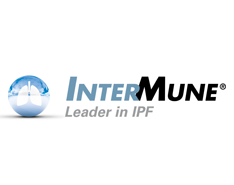Archives for September, 2013
New restrictions for energy drink marketing?
by Joshua Schneck

 | September 26, 2013
| September 26, 2013
Four U.S. Senators are calling for new restrictions for energy drink marketing, calling on 17 beverage manufacturures to avoid marketing their energy drinks to youngsters, according to an article by Keith Nunes in Food Business News. The letter states in part:
“Across the board, makers of energy drinks say they do not market their products to children,” Mr. Durbin said. “But we know that energy drinks are promoted through social media, and that samples are often distributed at places where teens hang out — like sports events, concerts, local parks, and S.A.T. prep courses. The truth is that contrary to industry claims, energy drink companies are using highly effective tools to reach young people and it is working. It’s time for these companies to heed the advice of public health experts across the country and stop telling children and adolescents to ‘pound down’ their products.”
Voluntary Adoption of American Beverage Association Requested
The Senators urged the drink manufacturers to adopt the American Beverage Association’s Guidance for the Responsible Labeling and Marketing of Energy Drinks and take other actions designed to curtail the marketing of energy drinks to young people. At a July, 2013 Senate hearing, three manufacturers, including Red Bull and Monster, agreed to adopt the Guidance.
Maureen Beach, director of communications for the American Beverage Association, responded to the Senators letter: “Our members are responsible companies that care about their consumers, especially children and young adults, as demonstrated through existing policies and programs. While A.B.A. did not receive the letter, we’re always willing to work with elected officials on behalf of our industry to clear up any confusion regarding our products and their safety.”
As a Minneapolis healthcare PR firm that is also a Minneapolis food & beverage PR firm, we firmly believe in responsible marketing to young people. At the same time, we also believe there are limits to what laws and regulations can accomplish in promoting healthy eating and drinking habits. Common sense starts at home.
Private label and digital marketing
by Joshua Schneck

 | September 25, 2013
| September 25, 2013
Private label and digital marketing: can they co-exist? The answer is an emphatic yes, as private label and store brands join the fight for the mind and preferences of the Millenniums – AKA “generation Y.” This generation, born from the early 1980s to the early 2000s, looks to the web and mobile for information and cues about what products to buy.
Facebook, Twitter, Blogs
That means Facebook, Twitter, blogs, and consumer review sites. It also means websites and mobile apps geared toward building relationships with private label customers, the same way retail brands are doing. As a Minneapolis food & beverage PR firm and marketing agency, we offer an integrated marketing package of advertising, PR, social media, SEO and content marketing to our food & beverage clients.
Supermarket News profiled ten examples of creative marketing to advance their marketing directly to consumers. My favorite: using Twitter promotions to build awareness and reward engaged customers.
Another great article appeared recently in Private Label Store Brands, covering Jim Wisner’s presentation at the 2013 Collaboration Summit. Wisner emphasized that the retail brand threat also pointed to great opportunity for private label and store brand marketers who are ready to embrace digital marketing and social media.
Private label store brands need not wait to see their share shrink as retail brands make inroads. An integrated food & beverage PR and marketing plan can build new relationships directly with customers, while communicating the natural advantages of private label.
Can healthcare PR be a crime?
by Joshua Schneck

 | September 24, 2013
| September 24, 2013
Can healthcare PR be a crime? In the case of ex-InterMune CEO W. Scott Harkonen, the answer is yes – according to the U.S. government, a Federal jury and the Ninth Circuit Court of Appeals. David Brown writes in The Washington Post about how Harkonen was convicted for issuing a press release that, according to the U.S. government, willfully overstated the benefits of a drug made by his company.
InterMune is a public company focused on pulmonary and orphan fibrotic diseases. It markets a medicine for idiopathic pulmonary fibrosis (IPF) and is in product development and clinical trials on other drugs.
No Factual Errors
According to Brown’s article, there were no factual errors in the press release in question. It was the interpretation of the facts that was deemed criminal. This raises troubling questions for a Minneapolis healthcare PR firm like ours, and our clients. When does promoting a point of view become a crime?
From the Post article:
“If you applied this rule to scientists, a sizable proportion of them might be in jail today,” said Steven N. Goodman, a pediatrician and biostatistician at Stanford University who submitted a statement supporting Harkonen’s appeal. “The courts don’t quite realize the significance of what is in front of them or the furor that might erupt if this kooky precedent is allowed to stand.”
Ruling a word of caution to a Minneapolis healthcare PR firm
This ruling is a word of caution to a Minneapolis healthcare PR firm that works in healthcare PR and healthcare content marketing. Can healthcare PR be a crime? It can in some cases, but there is a free speech issue here that needs to be thought through carefully.
Ultimately, it gets down to what patients are entitled to know. They shouldn’t be deceived, obviously, but should they be prevented from knowing a company’s interpretation of research facts? I don’t claim to have the answer, but it’s a question worth asking.
Bringing clarity to medical device PR
by Joshua Schneck

 | September 23, 2013
| September 23, 2013
Bringing clarity to medical device PR is a long standing goal of this Minneapolis healthcare PR firm.
MR Instruments is a producer of high-resonance MRI technology and developed the medical technology industry’s first 3T (Tesla) MRI coils for the most demanding MRI applications. The clarity of image MR Instruments helps produce for physicians was our inspiration for bringing clarity to MRI’s target audiences: MRI manufacturing companies, MRI users and buyers and key influencers.
MR Instruments hired Snow to increase visibility of this new technology and officially launch its flagship product at the RSNA Conference in Chicago. Snow Communications drew on its deep expertise and experience in medical device PR and medical device content marketing to bring about good results for MRI.
For more details, please see the case study.
Can you trust clinical practice guidelines?
by Joshua Schneck

 | September 18, 2013
| September 18, 2013
Can you trust clinical practice guidelines? Thank you, Gary Schwitzer of HealthNewsReview.org for an excellent blog post on the BMJ (British Medical Journal) article about conflicts of interest on clinical practice panels. The BMJ article details some of the types of conflicts common on the clinical practice panels that issue treatment guidelines.
As a Minneapolis healthcare PR firm dedicated to promoting the transformation of healthcare to a patient-focused, outcomes-based model, we believe it is vitally important that engaged patients receive evidence-based, unbiased information.
For example, in the controversial area of PSA testing, the article notes that The American Urological Association’s best practice update in 2009 and its 2013 practice guidelines reflected potential conflicts of interest in the context of association sponsorship, committee chair conflicts and multiple panel member conflicts. The article contrasts this with the conflict-free status of the U S Preventive Services Task Force in 2012.
Who do you believe?
While the U.S. Preventive Services Task Force found harm from routine PSA testing and no evidence of net benefit, the American Urological Association 2009 guidelines promoted routine PSA testing. In 2013, the Association revised its guidelines to reflect a more conservative approach to PSA testing.
As noted elsewhere, studies have found troubling patterns of conflicts of interest in practice guideline panels, and or lack of full disclosure of those conflicts. Part of the answer is the new Physician Sunshine Act, which we’ve written about previously, that requires the reporting of financial payments to physicians by pharmaceutical and medical device companies.
Avoiding Red Flags
The BMJ authors recommend that professional journals avoid the following red flags:
-
Sponsor(s) is a professional society that receives substantial industry funding;
-
Sponsor is a proprietary company, or is undeclared or hidden
-
Committee chair(s) have any financial conflict*
-
Multiple panel members have any financial conflict*
-
Any suggestion of committee stacking that would pre-ordain a recommendation regarding a controversial topic
-
No or limited involvement of an expert in methodology in the evaluation of evidence
-
No external review
-
No inclusion of non-physician experts/patient representative/community stakeholders
-
*Includes a panelist with either or both a financial relationship with a proprietary healthcare company and/or whose clinical practice/specialty depends on tests or interventions covered by the guideline.
Please take note, healthcare PR professionals, healthcare marketing professionals and journalists. And for full disclosure, this Minneapolis healthcare PR firm works for the parent company of an online source of unbiased medical reference and clinical recommendations. The client had nothing to do with the writing of this blog post, and I take full responsibility for its contents.
Healthcare Transformation and Content Marketing
by Joshua Schneck

 | September 17, 2013
| September 17, 2013
Healthcare transformation refers to the fundamental change going on in the healthcare industry, especially the ongoing transformation from a fee-for-services to an outcomes-based model. Transformation is being driven by meaningful use, value-based purchasing, accountable care organizations (ACO’s), the Affordable Care Act (Obamacare), and advanced clinical decision support. Summed up, these changes are about aligning incentives and using advanced technology to improve outcomes. For a Minneapolis healthcare content marketing firm, there is much to communicate about, and we’re excited to be part of this transformation.
The first step is to understand the bigger issues. As a Minneapolis industry analyst relations firm, we work closely with a number of the top research firms, including Gartner, IDC and The Advisory Board. Each of these organizations has written extensively about healthcare transformation. In addition, some of the better sources of information about healthcare transformation are The Center for Healthcare Research and Transformation, The Joint Commission Center for Transforming Healthcare, and The Institute for Health Technology Transformation.
It’s important to follow the law-making and rule-making processes in government. As a Minneapolis government relations firm, we develop and implement effective government relations strategies. We keep clients up to speed on legislative and regulatory trends and developments, and represent our clients before Congress and Federal agencies. Snow has worked with the FDA, HHS, OMB and other agencies. Snow prepares comment letters to Federal and state agencies, meets with Congressional staff to share perspective and seek assistance, sets up meetings with policy makers, produces testimony and whitepapers, and arranges for legislation to be introduced.
Based on well grounded, current knowledge, we provide strategy development and implementation. Suppliers to the healthcare market must communicate how their products and services will help providers meet the new challenges and opportunities in healthcare. Providers must reach out to patients in new ways, emphasizing better outcomes and patient engagement.
For a Minneapolis healthcare PR firm like ourselves, we understand the need to help clients create strategies for thought leadership through content marketing, PR, SEO and SEM and other, integrated approaches. Working with our clients, we help them create original content to drive aggressive content marketing that builds recognition for our client’s solutions, products, people and perspective, while also driving improved SEO and social media.
Smaller Testicles, Good Dads, Bad Reporting
by Joshua Schneck

 | September 12, 2013
| September 12, 2013
Dads with smaller testicles are more nurturing fathers, according to a rash of news stories run by Time, NBC, USA Today and other news organizations. Trouble is, the underlying story is far more nuanced – based on a study published in The Proceedings of the National Academy of Sciences, “Testicular volume is inversely correlated with nurturing-related brain activity in human fathers.” As healthcare PR professionals, we should be concerned when healthcare reporting sensationalizes scientific findings and fail to accurately rerport on these findings.
The key word there is correlated.
As Gary Schwitzer points out in his excellent HealthNewsReview.org blog, most of the news organizations failed to accurately report on this study. Gary notes that the authors of the study, at Emory University, did not claim that they had found a causal relationship between testicle size and parenting skill. In fact, they allow that it could be the opposite: parenting activity results in changes in the male body, including testicle size.
In the Emory University blog the authors state: “We’re assuming that testes size drives how involved the fathers are,” Rilling says, “but it could also be that when men become more involved as caregivers, their testes shrink. Environmental influences can change biology. We know, for instance, that testosterone levels go down when men become involved fathers.”
To be sure, some of the stories, like the ones in NBC and USA Today, do get to the nuance, but deeper in the article after most people have read or heard a misleading headline.
Why is this important to healthcare PR people? If the media can’t get a story like this right, where the information presented is fairly straightforward, how will they get complicated stories right, such as the appropriate treatment options for patients with low risk forms of cancer?
As a Minneapolis healthcare PR firm, we’ve heard clients complain that competitors can make unsubstantiated claims about their products and not get called out in the media. Schwitzer provides a watchdog service for healthcare news stories on a limited budget. His organization, and similar efforts, deserve support. But it’s important that health PR professionals, and healthcare reporters, conduct the checks and digging needed to provide accurate information to healthcare markets and customers.
Launch New Company with B2B PR and Content Marketing
by Joshua Schneck

 | September 10, 2013
| September 10, 2013
Like many Minneapolis B2B PR firms, Snow Communications uses Google analytics, SEO strategies, and related digital marketing technologies; but we understand that content is everything. We know a good story when we see it. Maybe that comes from having been a reporter and writer for The New York Times, The Star Tribune, Radio Sweden and other news organizations. Having been an editor, I have a good idea of what editors want, and don’t want. Good B2B PR firms figure out how take a story that is not fundamentally glamorous – and often far from it, and turn it into something a publication’s subscribers want to read.
In addition, we’ve launched dozens of new companies successfully.
Content Marketing: The Gift That Kept Giving
When we launched new company Zepol, we realized right away that this was a content marketing play – even before that term was in wide use. Zepol publishes trade data – data about the movement of goods from country to country, and that data is of great interest to a lot of people at companies and other organizations.
We made successful pitches about Zepol, its rapid growth, its value to its customers and related themes. But the gift that kept giving was where we offered recognized publications the opportunity to provide Zepol trade data in their publication and on their website. This became a recurring source of promotion for Zepol long after our work with them was complete.
Please read our case study
See details in our Zepol case study.
B2B PR Firms: Content is King
by Joshua Schneck

 | September 4, 2013
| September 4, 2013
For rock solid B2B PR firms that deliver big time for clients, content is king. It always was and it always will be. As a Minneapolis B2B PR firm, we’ve always believed that timely, relevant and focused content drives PR and marketing. Yes, digital PR, content marketing, social media, SEO and Google analytics are all important. They amplify your message and engage your intended audience. But without good content, the work a B2B PR firm produces will not be as effective. Don’t take my word for it; listen to Google:
Google Engineer Matt Cutts Recommends “Old Fashioned Marketing
As Distinguished Google engineer Matt Cutts recently said in an interview:
…a lot of SEO has been focused on technical matters and very highly specific ways to configure your website and stuff like that. There are best practices, and you need to make sure you get the basics right, but it is true that a lot of SEO is now circling back around to good old fashioned marketing.
We’ve found over the years that many B2B companies lack a well-defined marketing communications strategy. They struggle to express the key differentiators that drive results-oriented B2B PR, including law firm PR, healthcare PR and technology PR. Their press releases and media pitches go unanswered; they scratched their head and blamed the media. Now, with digital marketing and social media, they embrace digital techniques and gimmicks designed to increase click throughs and get them mentioned on obscure blogs read by a few dozen people.
Original, Strong Content Needed
Original, strong content offers information and insights not readily available, in a timely fashion, and in a form that is useful to people you want to influence. This, not click-through formulas, is what Google is trying to track in its search engine technology. Cutts says:
We’ll always keep chasing after the ideal world in which the search engines do what you would intuitively expect and bring you the best answer, whether it be from someone who is a friend of yours or someone who is an expert in the field or some completely different serendipitous author or person that you didn’t know about before, but they can really help with the information you need at that moment.
For a Minneapolis B2B PR firm specializing in healthcare PR, law firm PR and technology PR; we seek to help our clients define their audience and hone their messages so the recognized publications and websites cover them regularly even while we push out their ideas and engage their customers via digital marketing and social media.
Law Firm PR Generates New Business
by Joshua Schneck

 | September 3, 2013
| September 3, 2013
Law firm PR generates new business when PR and content marketing is used to positively change perceptions in the firm’s market. When Gray Plant Mooty, a business law firm with a 100-plus year history in the Minneapolis – St. Paul market, wanted to gain more public company business, they asked a Minneapolis PR firm that specializes in law firm PR, Snow Communications, to develop a strategy and then implement it.
Key To Campaign
Key to the campaign was understanding the market perceptions that were hindering the firm from gaining more public company business. With a better understanding of these perceptions, Snow was able to develop and implement a communications strategy that targeted some key areas of market perception for change.As an experienced law firm PR firm, Snow Communications has worked as a law firm PR firm for numerous law firms, and was well grounded in law firm PR, so it already had a methodology developed for working with law firms and creating successful law firm PR campaigns.
Central to the campaign was creating visibility for the public company issue in key media read and valued by decision makers, buyers and key influencers.
Encouraging Results
The results included improved awareness of the firm’s public company legal services offerings and additional business. As a Minneapolis PR firm with law firm experience, Snow Communications understands that supporting business development is the key to bring value to its law firm PR engagements.
For more information, see our case study, “Legal PR: Breaking Through.”








